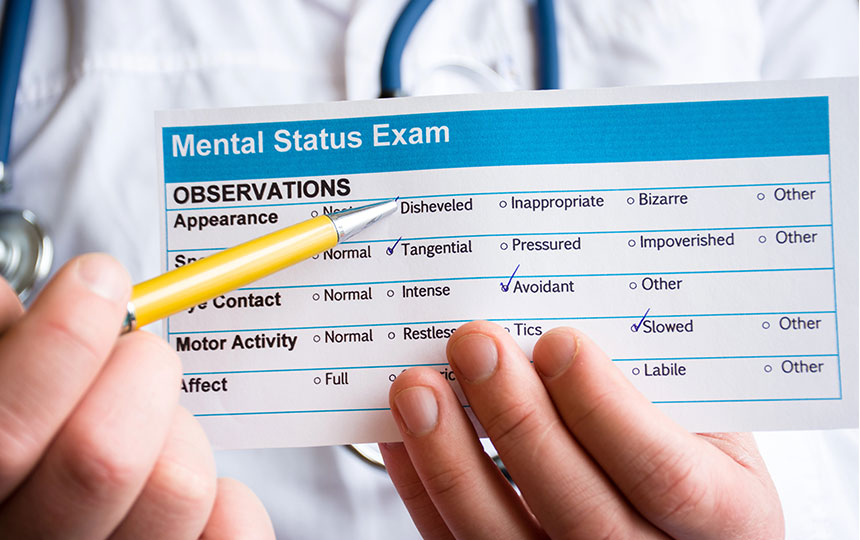When determining the right cognitive test for your loved one, understanding the key differences between the MoCA vs MMSE for dementia is vital. Both assessments are commonly used to detect mild cognitive impairment (MCI) and dementia, but they vary in complexity, coverage, and effectiveness.
Choosing the correct test could provide better insights into your loved one’s cognitive health, helping you make more informed decisions about their care.
What Is The MoCA Test?
The Montreal Cognitive Assessment (MoCA) is a screening tool to detect mild cognitive impairment and early-stage dementia. It evaluates a broad range of cognitive functions such as memory, attention, language, and executive function. The test includes tasks like drawing a clock, recalling a list of words, and subtracting numbers, designed to challenge various cognitive domains.
MoCA is particularly sensitive in identifying early cognitive decline, making it a preferred choice for detecting subtle changes in cognition. This sensitivity makes it more effective for diagnosing MCI, often before more severe symptoms of dementia become apparent.
What Is The MMSE Test?
The Mini-Mental State Examination (MMSE) is one of the most widely used cognitive tests. It primarily focuses on orientation, memory, and attention, with questions about time, place, and simple arithmetic. The MMSE is shorter than the MoCA, taking about 7 minutes to complete, and it is often used for diagnosing moderate to severe dementia.
While the MMSE is a useful tool, it may not be as effective in detecting the early stages of cognitive decline. The test focuses on basic memory and orientation, which might not fully capture the more complex cognitive issues in early dementia or MCI.
MoCA’s Broader Cognitive Coverage
One of the biggest advantages of the MoCA test is that it assesses more areas of cognitive function than the MMSE. It includes tasks that test executive function, abstract thinking, and more challenging memory tasks. This broader scope allows for a more comprehensive evaluation of cognitive health. For instance, the test can detect reasoning, problem-solving, and attention issues, which are critical cognitive skills that may not be evaluated as thoroughly in the MMSE.
This is particularly important when your loved one is experiencing subtle changes in cognition that do not yet interfere with daily life but could indicate early dementia or MCI. A more complex assessment like the MoCA will give you a clearer picture of your loved one’s cognitive health.
When Time Is A Factor
Time constraints may play a role in determining which test is more appropriate. The MoCA takes around 15 minutes to administer, while the MMSE can be completed in about half the time. While the shorter time frame of the MMSE may be more convenient, the additional information provided by the MoCA could prove more valuable in the long term, especially when it comes to developing treatment plans or monitoring cognitive decline.
MoCA’s Education-Adjusted Scores
Another advantage of the MoCA is its ability to adjust to education levels. This is particularly beneficial if your loved one has a lower level of formal education, which can sometimes affect test performance. The MoCA accounts for this by offering education-adjusted cutoff scores, helping to ensure more accurate results.
In contrast, the MMSE does not provide adjustments for educational background, which could lead to misinterpretation, especially for those who have had fewer formal schooling years. This makes the MoCA a more flexible tool in diverse populations.
Interpreting The Results
When interpreting the scores from either test, it’s important to remember that both the MoCA and MMSE are screening tools, not definitive diagnostic instruments. A score on the MoCA is typically lower than one on the MMSE because the MoCA is more challenging. For example, a score of 26 or above is considered normal on the MoCA, while a score of 24 or above is normal on the MMSE.
However, it’s crucial to factor in age, language, and cultural background when interpreting results. These factors can influence how well someone performs on these tests. A healthcare professional should evaluate the results with other assessments and medical history to determine the next steps.
Choosing The Right Test For Your Loved One
Choosing between the MoCA and MMSE ultimately depends on several factors. If your loved one shows signs of mild cognitive impairment, the MoCA is often the better choice due to its sensitivity and broader range of cognitive domains. For more advanced dementia cases, the MMSE may be sufficient, given its focus on memory and orientation.
At our retirement community, we understand how important it is to assess cognitive health to provide the best care. We offer exclusive programs, activities, and events tailored to your loved one’s needs, giving them the best quality of life.
We look forward to helping you and your loved ones explore your options for living in Anderson, SC, and the surrounding areas.







